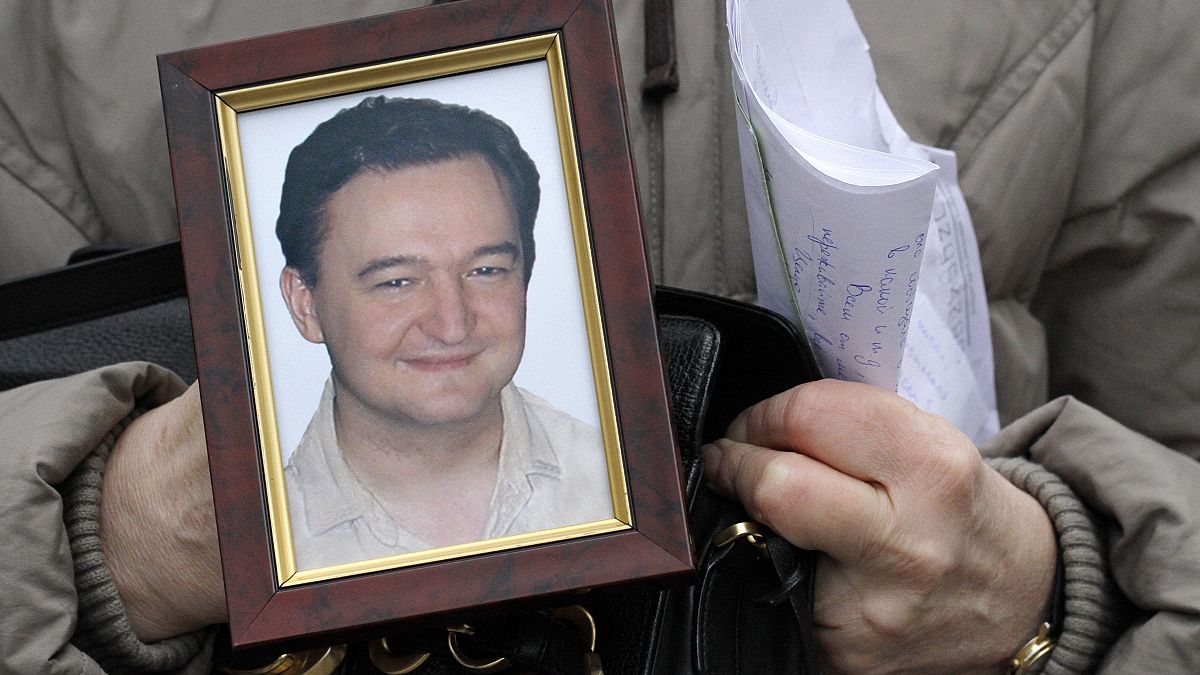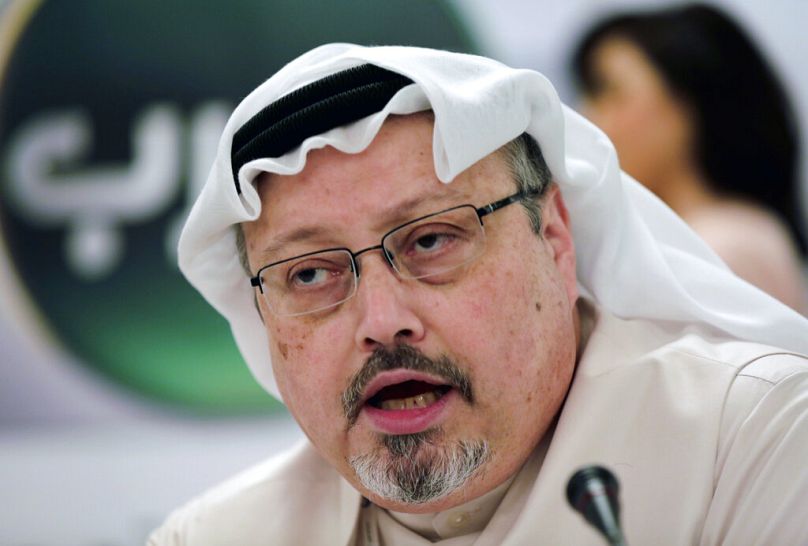Many countries now have a 'Magnitsky law' that allows sanctions on foreign officials suspected of human rights abuses. Now the EU is planning one of its own
As the European Union considers its own bloc-wide Magnitsky Act, Euronews explains the story of Sergei Magnitsky and how his name has come to be used for anti-corruption laws in countries around the world
Who was Sergei Magnitsky?
He was an auditor and lawyer who was investigating a large-scale Russian tax fraud case while working for London-based investment fund Hermitage Capital.
The fund, run by the US financier Bill Browder, said that millions of dollars in tax payments paid by Hermitage had been diverted to Russian officials. Magnitsky was one of a number of Hermitage associates arrested in 2008 after he informed the Russian government of his findings.
The US and Britain were among those countries that said Magnitsky was jailed on fabricated evidence in an effort to conceal his allegations of high-level corruption.
He was in pre-trial detention when he died in 2009 aged 37, following alleged mistreatment in prison.
Was he tortured?
Western countries certainly believe so. Various accounts from campaigners and opposition groups indicate Magnitsky had to endure extreme cold and water deprivation, and denied family visits and treatment for his pancreatitis.
The website Stop the Untouchablesalleges he was also beaten.
The Russian government flatly denied that Magnitsky was tortured prior to his death, but have conceded he may not have been given prompt medical treatment for his illnesses.
Magnitsky later became the first posthumous prosecution in Russian legal history when a court convicted him of tax evasion. Browder was tried and convicted in absentia on the same charges.
The US passed the Magnitsky Act in response — what was this?
This is the 2012 law that came out of a campaign that was supported by Browder.
It initially barred 18 Russian officials thought to be involved in Magnitsky's mistreatment and death from entering the US or using its banking system. It also banned any assets these individuals had in the country.
From 2016, Congress voted to expand it into the Global Magnitsky Act, which allowed for sanctions against human rights abusers in other parts of the world.
Since then, officials from countries as diverse as China, the Dominican Republic, the Gambia and even the US's NATO ally Turkey have been sanctioned.
It remains supported by both the Democratic and Republican parties. The original 2012 law was signed by Barack Obama, while Donald Trump endorsed its 2016 enlargement.
Did other countries follow suit?
Yes. Canada's own Magnitsky Law — officially called the Justice for Victims of Corrupt Foreign Officials Act — became law in October 2017.
The EU's three Baltic members — Estonia, Latvia and Lithuania — all have Magnitsky provisions of their own.
Britain has not passed a specific Magnitsky law, but in July 2020 Foreign Secretary Dominic Raab used a wider law to announce sanctions on 49 individuals, including the death of Magnitsky himself and that of the Saudi journalist Jamal Khashoggi.
Australian plans for a Magnitsky bill were launched in 2018 but have since stalled.
What about the European Union?
No formal mechanism exists for the European Union itself to impose sanctions on people suspected of human rights abuses in the same fashion as the United States.
Member states are free to create their own laws — as the Baltic nations already have done.
However, EC president Ursula von der Leyen said on Wednesday that she intends to create a system for such an initiative.
She told Euronews after her State of the Union speech: "The Member States are, at the moment, discussing the sanctions for those who are responsible for the violence after the elections that were neither free nor fair, and where people peacefully took to the streets.
"What we’ve learned out of that, too, is that we need a mechanism to, if human rights are violated, to impose sanctions that is faster and, therefore, we will propose, as the Commission, a so-called Magnitsky Act to move all forward in this topic."
European foreign ministers agreed last December to begin work on a Magnitsky Act for the entire bloc.
Scandanavian member states including Denmark and Sweden in particular are said to be eager. Members of the last European Parliament backed a resolution calling for one in March 2019.
But as is often the case in EU affairs, it will be the largest member states — particularly France, Germany and Italy — that will decide the scope and strength of a European sanctions regime.
Campaigners in all three countries have called for Magnitsky-style laws in the past, although governments have yet to begin work on domestic laws.
However, more recent prominent cases of abuse since Magnitsky's death, such as the Khashoggi killing or the poisoning of Alexei Navalny and his treatment in a Berlin hospital, will bring the issue into sharper relief.

